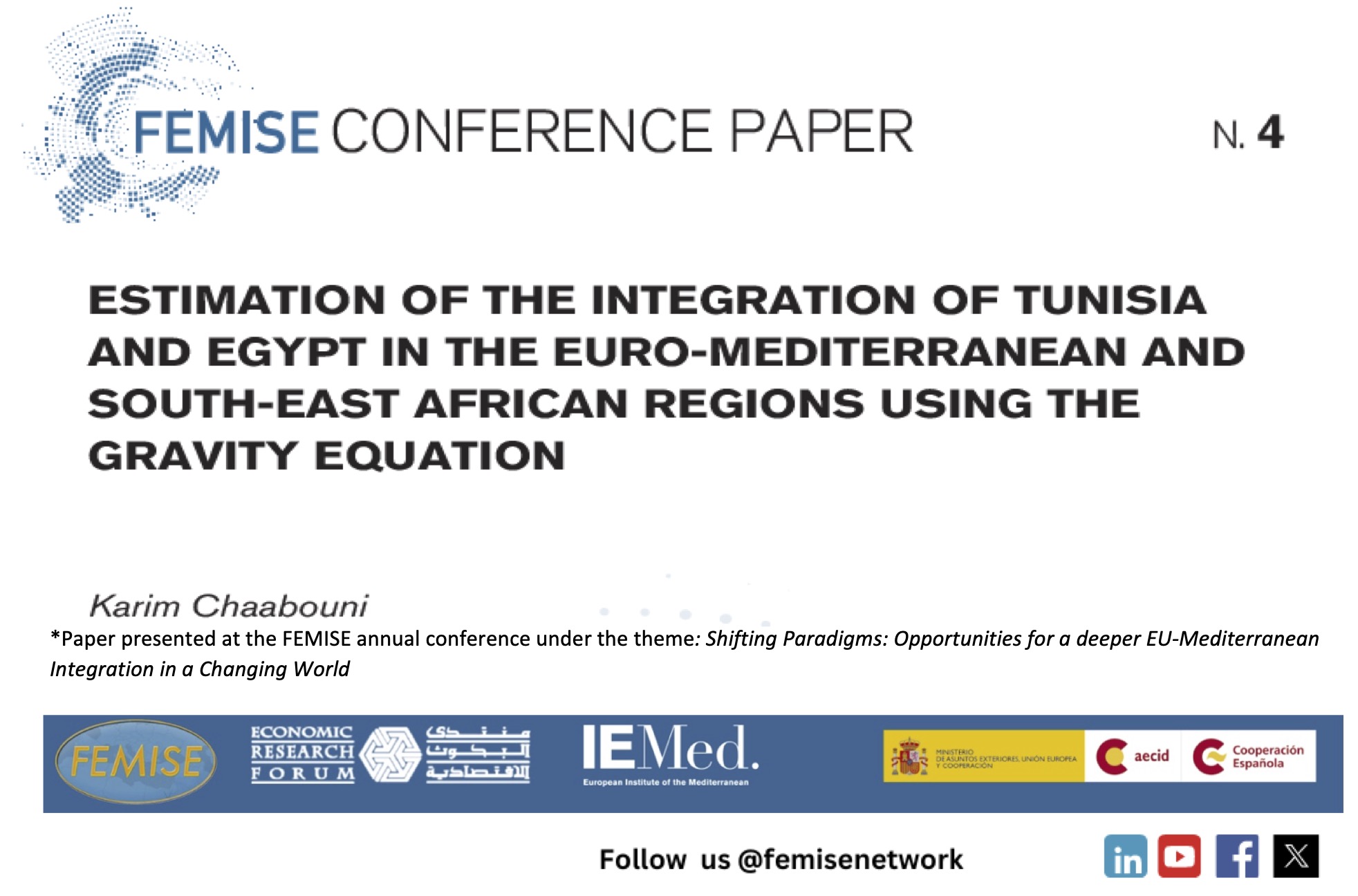Summary :

Tunisia and Egypt signed various trade agreements with several partners around the world and hold open economies. Association Agreements (AAs) concluded by both countries respectively in years 1995 and 2001 with the European Union (EU) within the framework of the Barcelona Process implemented bilateral Free Trade Areas (FTAs) covering industrial products and followed previous tariff advantages that have been shared for decades. Commercial ties between both countries and the EU remain strong. In harmony, Tunisia and Egypt tried to strengthen their trade links with Eastern and Southern African countries by integrating respectively in 2018 and 1998 the COMESA (Common Market for Eastern and Southern Africa), a Customs Union bringing together 21 African member countries. Within the Euro- Mediterranean region, both countries also signed various other integrations such as the bilateral FTAs with Türkiye respectively in 2004 and 2005.
This work tries to assess the trade integration of Tunisia and Egypt by considering all mentioned trade agreements, i.e. the Association Agreements concluded with the EU, the COMESA and FTAs with Türkiye. By the use of the Gravity Model estimation on Panel Data, the purpose is to evaluate whether determining factors included in the Gravity Equation raise or decline exports and imports of both countries with their selected partners. This also enables us to evaluate the attractiveness of target markets (EU, COMESA countries and Türkiye) for Tunisian and Egyptian exports and vice versa. The aim of this work is to go beyond previous empirical works carried out on this topic on various samples covering several countries around the world.
Findings confirm the positive impacts of countries’ economic sizes on bilateral trade, the negative effects of geographic distance, etc. Results permit also to compare between the influences of all considered trade agreements on Tunisian and Egyptian exports and imports. Finally, with reference to the estimation results, the idea is to foresee whether Tunisia and Egypt could assume intermediation roles facilitating triangular trade relations between the EU, the Southern Mediterranean and Southeastern Africa regions.

